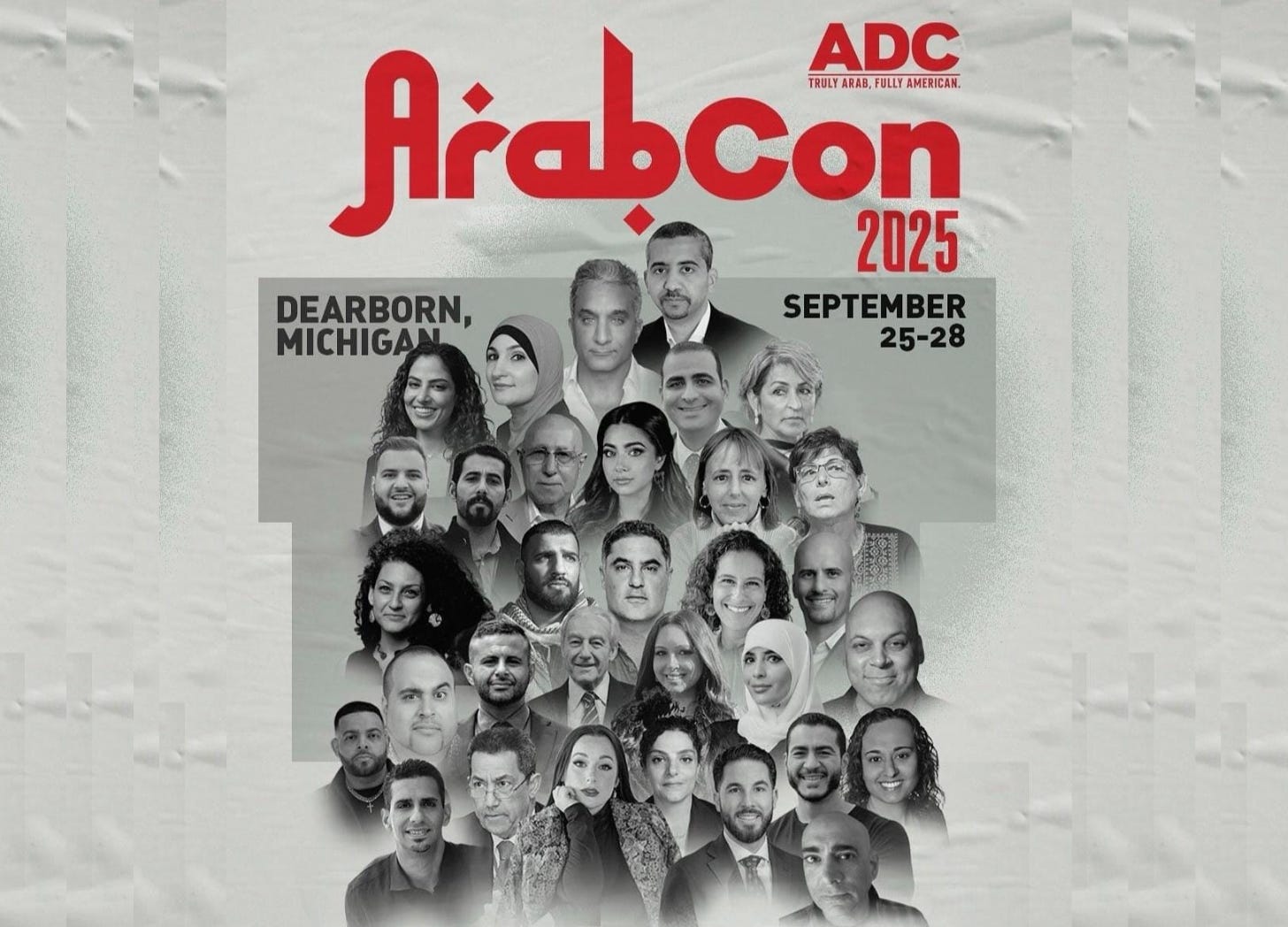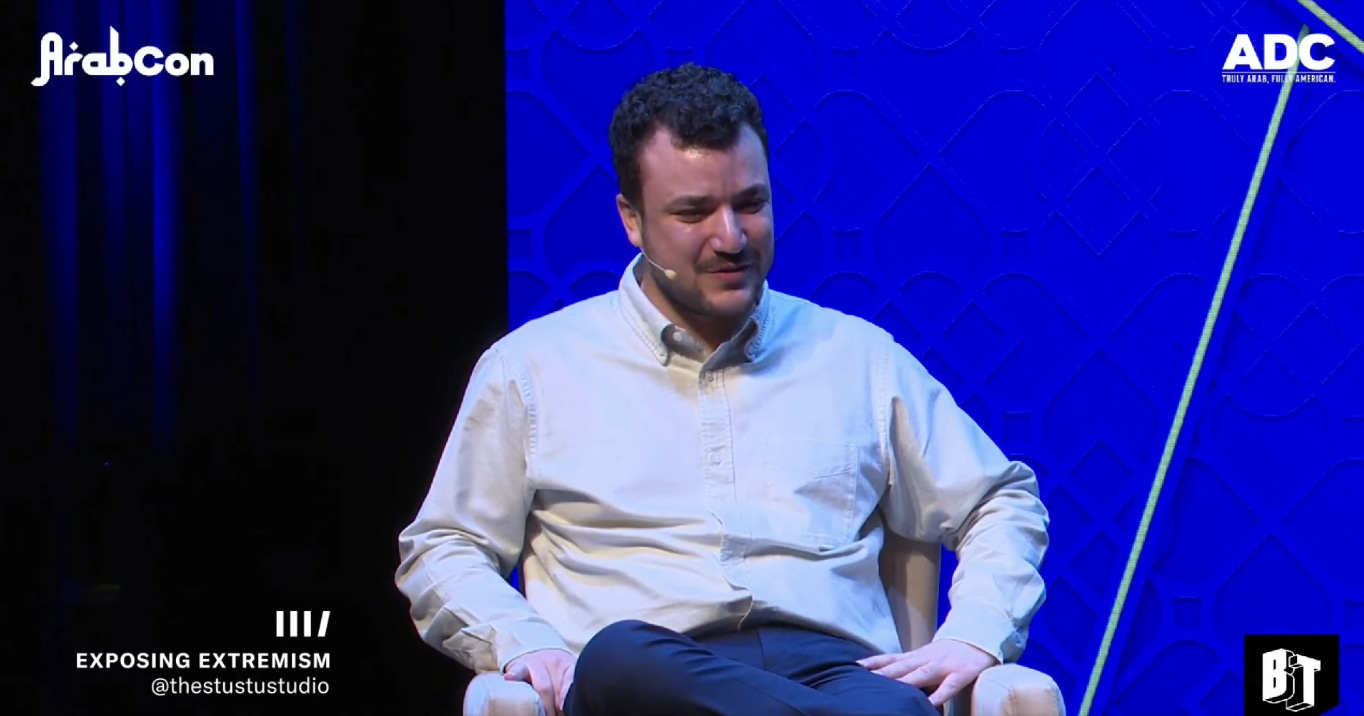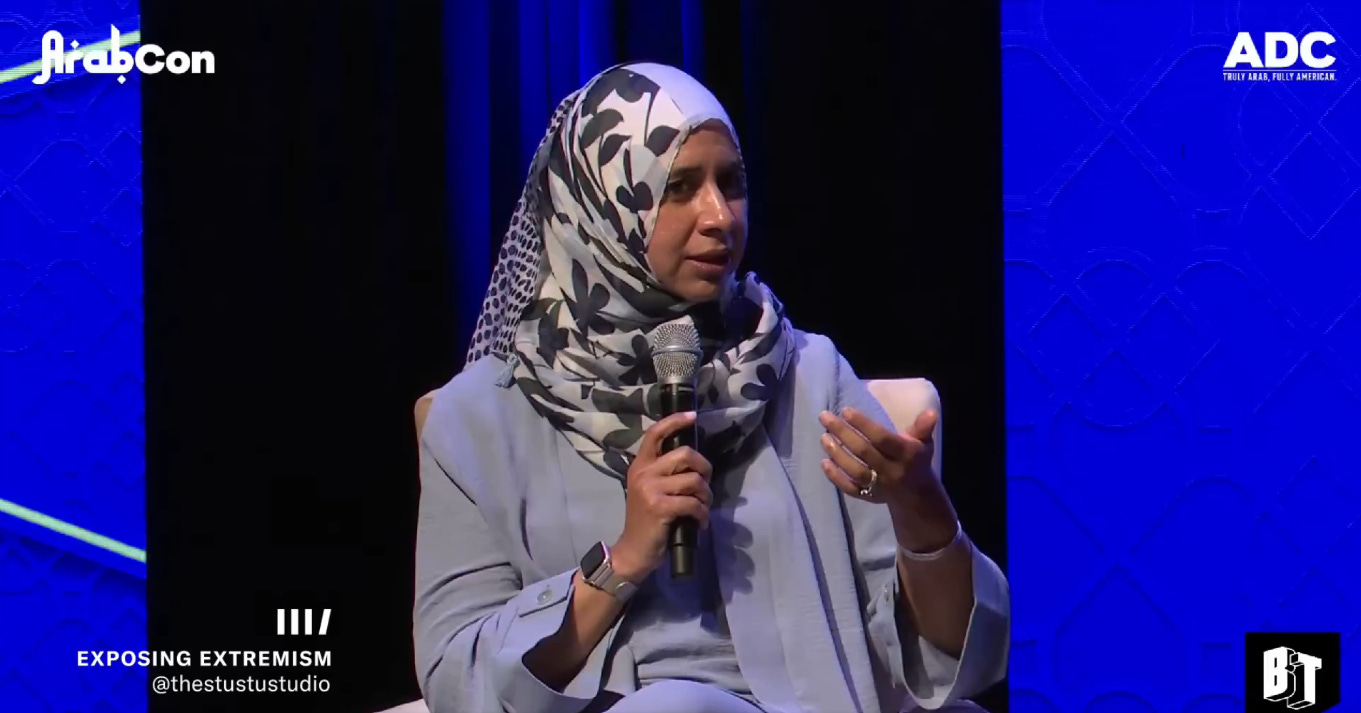Pro-Terror Rhetoric Dominates Second Annual ArabCon Conference in Dearborn
The ArabCon conference in Dearborn, Michigan has featured calls for revolution in the U.S., praise for convicted terrorists, and calls for insertion of radical political ideas into American classrooms

Stu Smith, an investigative journalist with the Manhattan Institute, has been documenting extremist rhetoric at the American-Arab Anti-Discrimination Committee’s (ADC) second annual ArabCon conference in Dearborn, Michigan, held from September 25-28, 2025.
Some of the most shocking moments Smith documented include Rep. Ro Khanna (D-CA) mocking conference critics by sarcastically asking attendees to “raise your hand if you’re a pro-terror radical,” attorney Ali Awad declaring “I donated all of the ticket sales to Gaza just to say a big f*ck you to all you Zionists,” and Code Pink co-founder Medea Benjamin attacking sitting Congress members as “devils who are supposed to be representing us but are representing a foreign country.”
Revolutionary Calls and Attacks on Constitutional Law
The conference’s most incendiary moments revealed speakers promoting radicalism and calls for revolution against American institutions. Chris Smalls, the former Amazon Labor Union president, declared “we gotta escape this two-party plantation” and proclaimed “this is a revolution, but the revolution starts with yourself.”
Amy Greer, serving as lawyer for Mahmoud Khalil, called for the legal system to operate within a “liberatory framework” rather than constitutional principles. Smith identified this language as stemming from radical academic traditions and representing “the infusion of extreme leftist philosophy into law” that abandons impartial justice in favor of activist outcomes.
Mahmoud Khalil himself appeared at the conference, claiming he had been “deported twice” and revealing he was “set to start a career as a Palestine policy adviser for an organization at the UN” before his legal troubles began. Khalil reaffirmed that he will continue “advocating for the liberation of Palestine” regardless of his legal issues.

Praise for Convicted Terrorists and Extremist Figures
Perhaps most disturbing were speakers who openly praised individuals convicted of terrorism. Lara Sheehi, a psychology professor at the Doha Institute, lauded convicted terrorists Walid Daqqa, Georges Abdallah, and Khalida Jarrar — all of whom were members of the U.S.-designated Popular Front for the Liberation of Palestine terrorist organization — as teachers who “have always taught us that the psychological terrain is a primary terrain for targeting.” She described their insights as valuable lessons about combating what she termed Zionism’s expansion into “our psychic space.”
Zahra Billoo of CAIR-SF Bay called attention to imprisoned Holy Land Foundation figures, stating “Who does deserve airtime is Ghassan Elashi, is Shukri Abu Baker. Like they are still behind bars. They’re like grandparents now.” The Holy Land Foundation leaders were convicted in 2008 of funneling millions to Hamas, a designated terrorist organization, yet Billoo presented them as sympathetic elderly figures deserving public support rather than convicted criminals who financed terrorism.

Anti-Israel Activism and Educational Indoctrination
Medea Benjamin, recipient of the conference’s Rachel Corrie Award, used her platform to rail against “lobby groups like AIPAC, like Christians United for Israel, [and] the military industrial complex” while declaring herself “an honorary Arab, an honorary Muslim from the Jewish community.”
ADC National Executive Director Abed Ayoub made sweeping claims that entire American professions are under ideological control, stating that law, medicine, and engineering are “Zionist-controlled.”
Conference speakers promoted inserting their political agenda into American schools, with Colette Cavanagh (ADC) and Dr. Samia Shoman (Teach Palestine) describing Palestine as one of the “great silences” in U.S. education. They advocated for mandatory inclusion of their narrative in K-12 curricula,
Stu Smith’s work continues his broader mission of exposing extremist rhetoric in American political discourse, having previously documented similar concerning content at events like the People’s Conference for Palestine. His coverage of ArabCon provides a window into the radical ideologies being promoted within certain activist circles under the guise of civil rights advocacy and community dialogue.


